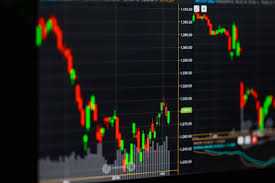Understanding the Forex Trading Tax Calculator for Traders

Understanding the Forex Trading Tax Calculator for Traders
Forex trading can be a lucrative venture, but it’s crucial to understand the tax implications of your trading activities. Every trader, whether novice or expert, must navigate through the complexities of tax obligations associated with their trading profits. To assist with this, many traders leverage tools like the Forex Trading Tax Calculator. Additionally, those interested in exploring options might want to check out forex trading tax calculator Nigerian Trading Platforms to see how they can integrate tax calculators into their trading strategy.
What is a Forex Trading Tax Calculator?
A Forex trading tax calculator is a specialized tool designed to help traders calculate their tax liabilities based on their trading profits and losses. By inputting relevant trading data—such as profits from trades, holding periods, and expenses—traders can receive an estimate of how much tax they may owe. This calculator can be an invaluable tool, especially during tax season, as it helps ensure that traders are compliant with local tax regulations.
Why is It Important?
Understanding the tax implications of Forex trading is crucial for several reasons:
- Compliance: Governments require that all income is reported for tax purposes. A tax calculator aids in accurately determining taxable income.
- Maximizing Profit: By accurately calculating taxes, traders can better understand their net profits and make informed trading decisions.
- Minimizing Liabilities: Knowing potential deductions or tax credits can help reduce overall tax liabilities.

Key Features of a Forex Trading Tax Calculator
When selecting a Forex trading tax calculator, consider the following features:
- User-friendly Interface: A straightforward design is essential for ease of entry and understanding of information.
- Customization: The ability to tailor the calculator for specific regulations in different countries is vital, especially for international traders.
- Comprehensive Reporting: Look for calculators that offer detailed reports and projections based on your input.
- Integration: Ideally, the calculator should integrate with trading platforms so that data transfer is seamless.
Steps to Use a Forex Trading Tax Calculator
Here’s a simple guide on how to effectively use a Forex trading tax calculator:
- Gather Trading Data: Collect all relevant information, including profits, losses, fees, and any deductions you may be eligible for.
- Input Data: Enter the collected data into the calculator, ensuring that all figures are accurate and up to date.
- Review Results: Analyze the output provided by the calculator, which typically includes your estimated tax liability.
- Adjust Data if Necessary: If you see discrepancies or have additional information, update the calculator accordingly.
- Consult a Tax Professional: While calculators can provide estimates, it’s wise to consult with a tax advisor for comprehensive tax planning.
Common Tax Regulations Affecting Forex Traders
Forex traders must abide by specific tax regulations that vary by country and region. Here are some common aspects to consider:

- Capital Gains Tax: Most countries classify profits from Forex trading as capital gains, which are taxed differently than ordinary income.
- Tax Deductions: Eligible expenses related to trading activities, such as commissions and software purchases, may be deductible.
- Different Tax Rates: Tax rates can vary significantly depending on whether the trader is classified as a professional trader vs. a retail trader.
Challenges Forex Traders Face with Tax Calculations
Forex trading brings unique challenges when it comes to tax calculations:
- Complex Trading Strategies: Traders who use various trading strategies may find it challenging to keep track of the tax implications of each.
- Frequent Transactions: The high volume of trades can complicate tax reporting since each trade needs to be accounted for.
- Regulatory Changes: Tax laws can change frequently, and staying updated can be daunting for traders.
Conclusion
Using a Forex trading tax calculator can be a game-changer for Forex traders looking to manage their tax responsibilities effectively. Understanding your obligations and leveraging the right tools can save you time, reduce stress, and ultimately help you retain more of your hard-earned profits. As you navigate the complexities of Forex trading and taxation, always remember the importance of seeking professional advice for your specific circumstances.
In summary, mastering your taxes is just as essential as mastering your trading strategy. Utilize available tools, stay informed about the regulations, and keep your documentation organized to ensure a smooth tax season.